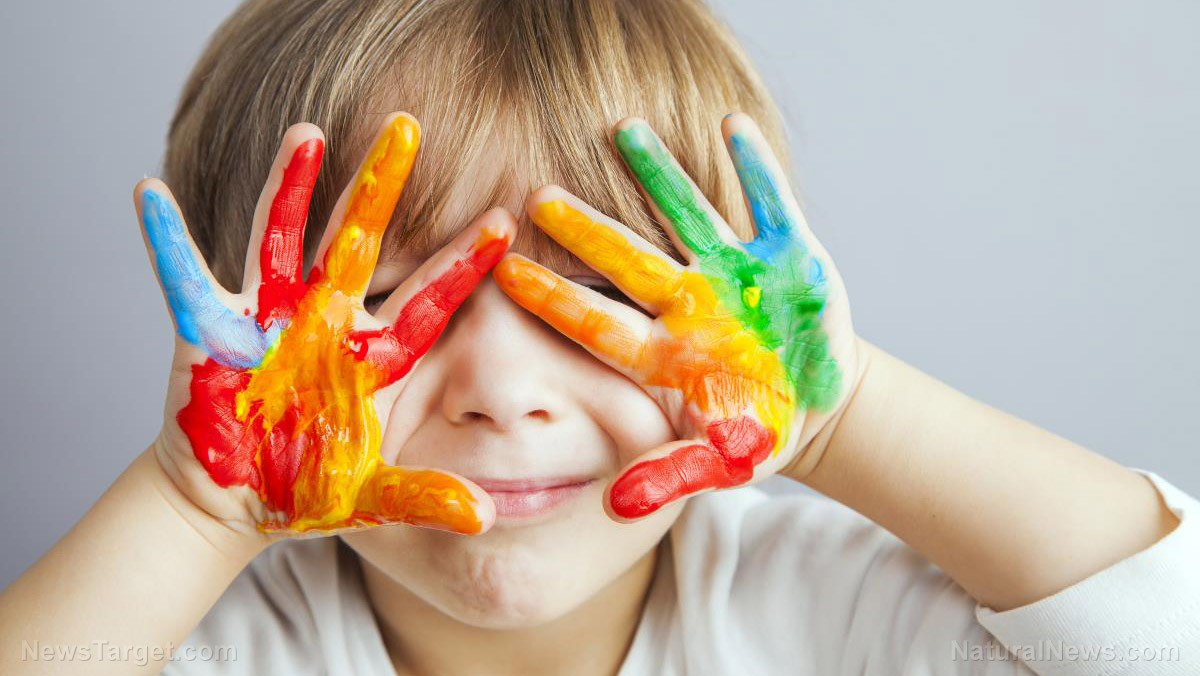Art Therapy – sources, health benefits at NaturalPedia.com
12/20/2017 / By Frances Bloomfield

Art therapy, also known as creative arts therapy, is a type of psychotherapy wherein art media serves as the fundamental mode of expression and communication. Rather than being used as a diagnostic tool, art therapy provides a unique medium for people to address their emotional issues and manage their behavior.
The earliest proponents of art therapy in the U.S. were Edith Kramer and Margaret Naumburg. Kramer was an Austrian artist who believed that negative emotions could be transformed into something useful through art, and that the success of art therapy could be evaluated through the art itself. Naumberg, on the other hand, asserted that art could be utilized as a means of releasing the unconscious and lead to increased verbalization.

Health benefits of art therapy
One purported benefit of art therapy is in the treatment of post-traumatic stress disorder (PTSD), a psychiatric disorder that stems from extremely traumatic events such as war or abuse. Triggering people with this condition can cause them to re-experience the trauma, feel panic or anxiety, and dissociate. Recovering from this condition usually involves working through the memories until they no longer induce the aforementioned symptoms. Art therapy can aid those with PTSD by offering an alternative outlet for expression and help them externalize the more difficult parts of their trauma.
As Gretchen Miller, board-certified art therapist for the National Institute for Trauma and Loss in Children, explained to Healthline.com: “Art expression is a powerful way to safely contain and create separation from the terrifying experience of trauma. Art safely gives voice to and makes a survivor’s experience of emotions, thoughts, and memories visible when words are insufficient.”
Moreover, the researchers behind a 2010 paper found that “art can be a refuge from the intense emotions associated with illness.” They cited one study where women who were grappling with cancer-related difficulties benefited from visual arts in four ways:
- Art allowed them to take their mind off cancer and instead concentrate on positive life experiences.
- Art provided them opportunities for challenge and achievement, which in turn boosted their sense of self-worth.
- Art enabled them to define their social identities, divorced from cancer.
- Art granted them a chance to express their feelings symbolically, particularly during chemotherapy.
They concluded with: “Use of the arts in healing does not contradict the medical view in bringing emotional, somatic, artistic, and spiritual dimensions to learning. Rather, it complements the biomedical view by focusing on not only sickness and symptoms themselves but the holistic nature of the person.”
According to Counselling-Directory.org.uk, art therapy can assist people from various groups, most notably:
- People on the autistic spectrum
- People who feel distanced from their emotions
- People with dementia
- People with learning difficulties
- People with mental health problems like schizophrenia
Body systems supported by art therapy
As art therapy has been shown to benefit patients dealing with stress, anxiety or trauma, this type of therapy can be considered good for the brain.
Even those suffering from traumatic brain injuries can be helped by art therapy, as was discovered in one pilot study. Six patients with this condition participated in five art therapy sessions that lasted one hour, and did such activities as making collages and playing with 3D figures. By the end of the study, four of the six patients showed signs of reduced depression, three had decreased anxiety, and five felt less stress.
Where to learn more
- 21 Uplifting Natural Remedies To Cheer Depressed Persons And Give Them Hope
- Art therapy can reduce pain and anxiety in cancer patients (press release)
- How Expressing Yourself Creatively Can Benefit Your Health
- Italian case study suggests enjoying artwork can lower the body’s stress level by 60 percent
- The Amazing Mental Health Benefits of Art – No Special Talent Required!
Summary
Art therapy is a kind of therapy wherein patients express themselves through art. It’s most often utilized as a method of improving a person’s mental well-being or emotional state, though it can be used as a means of relieving stress and tension as well. People who have mental health issues, such as schizophrenia and PTSD, can benefit from art therapy, as can those who have difficulty talking about their feelings.
Sources include:
Tagged Under: Art therapy




















